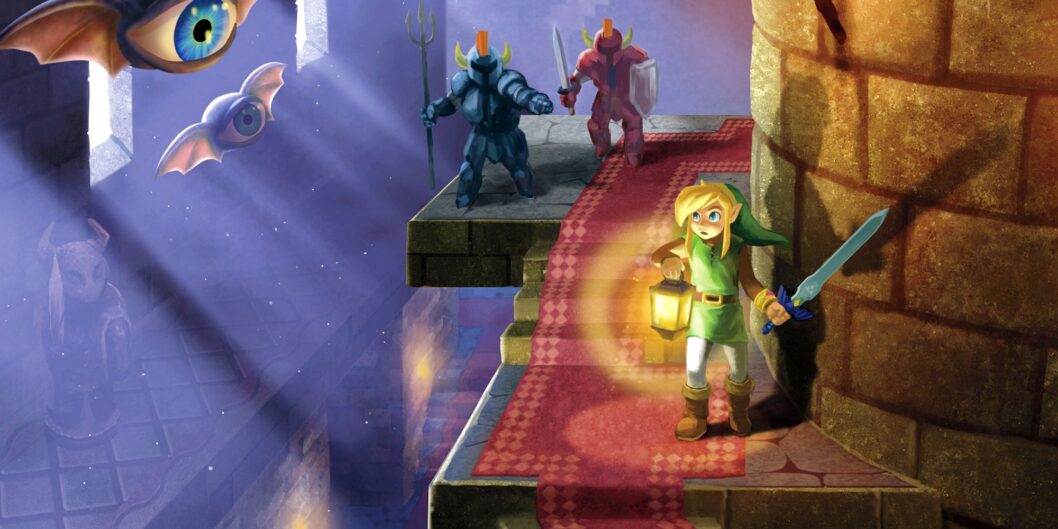Nintendo’s Switch 2: Could Mouse Controls Pave the Way for a Zelda Strategy Game?
The Nintendo Switch 2 has redefined gaming possibilities for the platform, introducing mouse controls that some are eager to see expanded into iconic franchises like The Legend of Zelda. This exploratory article delves into the potential for a Zelda strategy game utilizing the console’s new functionalities, while also considering the challenges and likelihood of such a development.
The Potential of Mouse Controls on Switch 2
Nintendo has a long-standing history of leveraging its hardware capabilities to reinvent gameplay. The Switch 2’s introduction of mouse controls is a notable addition, particularly for strategy games. As one gamer observes, despite some ergonomic challenges in using the Joy-Con sideways, the experience has mostly been positive. For example, playing Civilization 7 on the Switch 2 demonstrates that the hardware has the potential to host robust strategic gameplay.
Imagine a Zelda strategy game set in the rich world of Hyrule; factions like the Gorons and Zoras could provide varied gameplay mechanics. Such diversity could lead to unique town-building challenges and combat differences based on terrain, improving the overall gaming experience.
Envisioning Hyrule as a Strategy Setting
While the notion of a Zelda strategy game excites fans, the setting of Hyrule is well-suited for such exploration. The expansive lore of the Zelda universe includes rich factions like the Rito, known for specialized air units, or the stealthy Gerudo. Each race brings its unique strengths and weaknesses into combat scenarios. Possible plots could involve historical events, such as the civil war preceding Ocarina of Time, allowing players to command armies during significant conflicts or even focus on societal dynamics without direct warfare.
Complications in Development
Despite its enticing prospects, the reality is that Nintendo is unlikely to pursue a Zelda strategy game. The first hurdle is development resources. With the Zelda series split primarily between 2D and 3D experiences and only releasing new titles every few years, adding a strategy spin-off could stretch the company’s already limited resources too thin.
Another key point is Nintendo’s narrative vision for Zelda. Traditionally, the series revolves around themes of good versus evil, where inter-faction conflict plays little to no role. The lore only lightly touches on Hyrulean conflicts, rendering major wars between native races unlikely in the current narrative framework. Even the civil conflicts depicted in games like Tears of the Kingdom are explored primarily through flashbacks, signaling a reluctance to delve into grim warfare.
The Possibility of External Development
The concept isn’t entirely impossible. Other developers, such as Koei Tecmo with Hyrule Warriors and Brace Yourself Games’ Cadence of Hyrule, have successfully created spin-offs under Nintendo’s oversight. However, a full-fledged strategy game that involves the domination of Hyrule’s factions poses ethical concerns that may deter Nintendo from allowing this direction.
There is a history of light-hearted interpretations, such as the Hyrule Warriors franchise, where players battle against Ganon’s minions rather than each other. The idea of conquering races within Hyrule likely stands at odds with Nintendo’s signature family-friendly approach.
Conclusion
While the introduction of mouse controls on the Switch 2 opens exciting possibilities for strategy games, translating The Legend of Zelda into this genre remains improbable. Fans may dream of conquering Hyrule and leading diverse factions, but development challenges and narrative goals will likely keep Nintendo focused on the series’ traditional themes. The Zelda franchise presents vast potential for engagement in various formats and genres, yet it seems that a Zelda strategy game is a dream that may never materialize under the current leadership.
Nintendo’s commitment to preserving the essence of Zelda while exploring new avenues speaks to both its dedication to innovation and its respect for the beloved franchise. As gamers await further announcements, they can continue to enjoy the rich lore and immersive worlds that the Zelda series has offered for decades.









